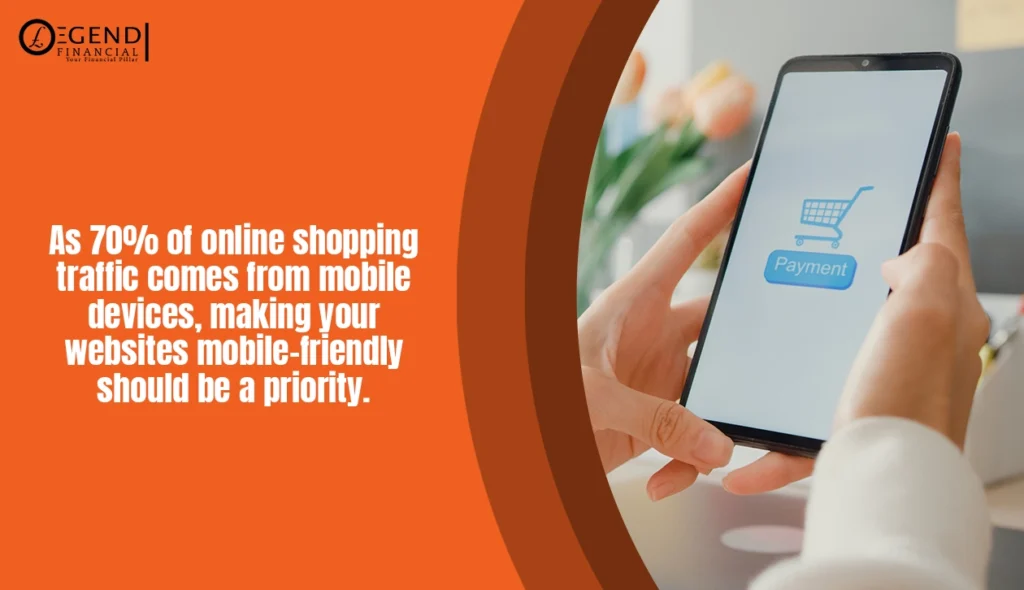Contents
There are over 30 million e-Commerce websites now up and running. If you are ready for a business open all round the clock, setting up an online business is your first step. There is no one-size-fits-all approach on how to start, but here, we give you a general idea how to start e–Commerce business. Read on.
What Is an E-Commerce Business
E-commerce businesses sell goods or services online through platforms such as Shopify, Wix, Amazon, and eBay. E-Commerce businesses operate on various models, such as B2B or B2C, which are two most common operation models, ranging from dropshipping to subscription-based models.
You can also purchase an e commerce business for sale to save time setting up a new one. Wise investors use this strategy to build up existing brands and catalyse initial sales.
However, before acquiring due diligence to assess market position, financial health and growth potential is crucial.
Benefits of Starting an E-Commerce Business
Less Effort, More Profit Margins:
Managing an ecommerce business from home has become convenient. Shoppers can browse online anytime, search for products, and checkout in no time. This not only enhances customer experience but also maximises your ROI by cutting off expenses associated with physical stores.
Eliminates Middlemen:
Starting an ecommerce business is cost effective compared to traditional brick-and-mortar stores. By using ecommerce platforms, you get to manage your online store without relying on middlemen. This guarantees a positive user experience with increased cash flow.
Access to Global Marketplace:
Online shop gives you exposure to a broader target audience. With the right logo design, branding and SEO strategy can help create a positive touchpoint for worldwide consumers. This scales up your customer base and creates brand awareness.
Cost-Effective Marketing Solutions:
You can market your online business in affordable ways, such as pay-per-click, email marketing, and social media marketing, as opposed to traditional means. Digital marketing strategies drive organic traffic whilst converting leads into recurring customers.
How to Start E-Commerce Business
You do not need to be an e-commerce giant to run a successful e-commerce business. With precise start–up strategy and marketing tools, you can achieve a profitable online business.
Identify Your Niche
The niche determines the success of your e-commerce business. Research and explore market demands and e commerce business ideas on social media, search engines, or on ecommerce platforms. Select a niche aligned with your passion and which clearly serves what your consumer needs.
Focus on offering unique values and avoid overcrowded niches.
Competitor Analysis
Analyse your niche competitors thoroughly to identify opportunities and make your online business stand out whilst staying compliant with HMRC tax rules. Study their product pricing, listing, branding, and customer feedback.
A SWOT analysis can help you understand yourself, your niche, and competitors more effectively.
- Assess Your Strengths: Ask yourself if you have the right skills and resources to efficiently run an e-commerce business successfully.
- Identify Your Weaknesses: Ask yourself if you need to invest and hire a website developer, graphic designer, or a digital marketing expert to run successful social media and search engine ad campaigns.
- Explore Your Opportunities: Do you have a cost-effective alternative to keep your online store in operation if funds are limited?
- Recognise Threats: Ask yourself how to be competitive, maximise current resources, and avoid overspending.
Understand Your Target Audience
Know your target audience, their likes, dislikes, habits, and pain points. This will help you develop a website with a personalised user experience, from product descriptions to customised offers and effective email campaigns.

Develop a Business Plan
To craft the perfect business plan, you need to make an e commerce business list of different business models and names and then pick the one that suits you best.
E-commerce business revenue model options include:
- Dropshipping – selling without holding inventory via third-party logistics
- Wholesaling – bulk B2B sales requiring warehouse space
- White labelling – rebranding third-party products
- Private labeling – customising products under your brand
- Subscription service – recurring deliveries
E-commerce business model options include:
- B2B: Business-to-Business
- B2C: Business-to-Consumer
- C2C: Consumer-to-Consumer
- C2B: Consumer-to-Business
- B2A: Business-to-Administration
- C2A: Consumer-to-Administration
Business plans should be developed according to key factors such as online ROI budget, consumer market, marketing strategies, inventory management, and fulfillment process.
When choosing a business name, make sure it reflects your niche. The name should be simple and predictable, clearly conveying what you sell. This helps consumers easily grasp the business’s unique selling point.
To manage a flourishing business, you can invest in accounting software or get assistance from a professional accountant to help you oversee the finance department.
Choose an E-Commerce Platform
To build a professional online store, you need to choose an ecommerce platform—it could be Shopify, WooCommerce, or Wix. These easy-to-use tools help you seamlessly integrate essential features such as mobile responsiveness and built-in SEO tools.
E-Commerce platforms are not only budget friendly but also offer integrated payment gateways such as PayPal, Shopify payments, or Stripe. Running an online business, you also need to keep in mind the Payment Card Industry Data Security Standard (PCI DSS) which enforces honest dealings with your card-paying customers.
Secure Suppliers and Delivery Methods
For your e-commerce business to succeed, be sure to have a fulfillment strategy and establish partnerships with the right manufacturer. Decide whether to source products internationally or domestically.
A fulfillment approach also depends on the business plan. Organised and proficient warehousing, eCommerce bookkeeping, and inventory tracking are essential to managing operational costs. Services like click-and-collect and third-party logistics (3PL) can optimise the process and enhance customer convenience.
Design and Launch Your Website
The website is your virtual storefront. Just as your business name should be precise and prompt, your website should reflect your niche. The website design must be clean and user-friendly with a cohesive colour scheme, well-written product descriptions, and high-quality product images. Add pages such as About Us, FAQs, and Contact Us for professional touch.
Market Your E-Commerce Business
You can devise a marketing strategy using the latest digital marketing trends and tools. To enhance brand visibility, you can make the most of it with social media marketing, search engine optimisation, and ad campaigns. You can actively engage with your target audience on platforms like Facebook and Instagram to foster credibility and loyalty.
Frequently Asked Questions
Initial investment for an e-commerce business relies on factors such as domain registration, hosting, inventory, marketing, and platform charges, so start with minimal investment and scale up.
Yes, it can be highly rewarding to start ecommerce business UK, as 50% of consumers prefer online shopping, which increases your growth potential.
In the UK, business licences and permits are not mandatory to sell online. But you must register with HMRC as self-employed (e.g., sole trader or partnership) to report and pay self–employed tax and NIC.
It is quicker to sell on e-commerce platforms like Amazon, eBay, or Shopify. Creating your own website gives you full authority but demands web development, SEO, and marketing.
It is not mandatory to hire an accountant for eCommerce, but it is highly recommended as they help you with tax compliance, bookkeeping, financial planning, and legal protection.
Get Business Advice from Legend Financial
Strategic planning, with the right tools, and a strong financial foundation is essential to setting up an e-commerce business. From selecting a niche to inventory management and marketing, every step is significant for long-term viability. Legend Financial offers guidance on how to start e-commerce business. From registering your business with Companies House to assessing areas for development, our experts are here to help you build and thrive in the UK market.












